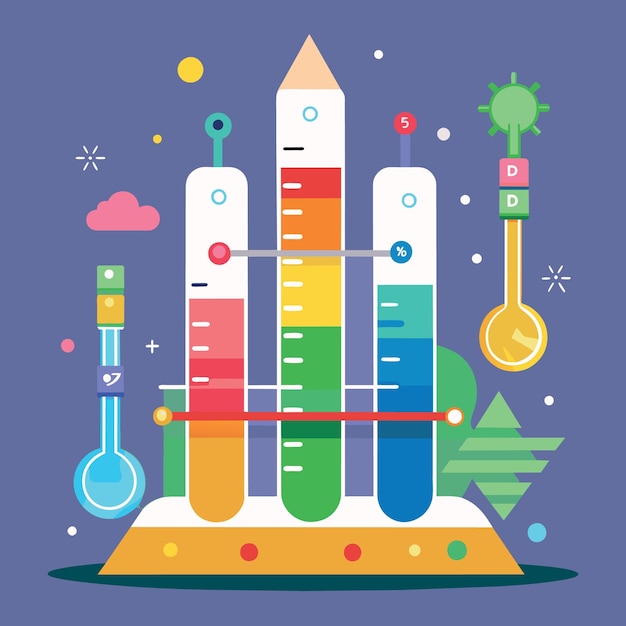Is a STEM Degree Worth It in 2025? Job Placement Analysis

Anúncios
A STEM (Science, Technology, Engineering, and Mathematics) degree’s value in 2025 hinges on evolving job market demands, technological advancements impacting specific roles, and the continuous need for skilled professionals in innovative sectors.
Are you contemplating a STEM degree and wondering about its future prospects? The question, “Is a STEM Degree Still Worth It? A Data-Driven Analysis of Job Placement Rates in 2025,” is on many students’ minds. Let’s delve into the data and uncover the realities of the STEM job market.
Anúncios
The Evolving Landscape of STEM Education and Careers
The world of STEM is dynamic, characterized by continuous innovation and shifting demands. Understanding how these changes impact the value of a STEM degree is crucial for prospective students.
Several key factors influence the landscape:
Anúncios
- Technological advancements automate some roles while creating new ones.
- Economic shifts impact investment in specific STEM fields.
- Educational reforms aim to better prepare graduates for the workforce.
These factors make it imperative to regularly assess the value of a STEM degree and understand where opportunities lie.

Analyzing Job Placement Rates: A Data-Driven Perspective
Job placement rates offer a tangible measure of a degree’s value. By examining trends and projections, we can gain insights into the current and future demand for STEM graduates.
Key considerations include:
- Overall placement rates for STEM graduates compared to other fields.
- Variations in placement rates across different STEM disciplines.
- Geographic variations reflecting regional economic strengths and industry clusters.
Analyzing this data helps students identify fields with strong job prospects and make informed decisions about their education.
High-Growth STEM Fields in 2025
While the general outlook for STEM is positive, specific fields are projected to experience particularly strong growth. Identifying these high-growth areas can help students focus their studies and career aspirations.
Computer Science and Software Engineering
Demand for software developers, data scientists, and cybersecurity experts continues to soar.
Biotechnology and Biomedical Engineering
Advances in healthcare, personalized medicine, and genetic engineering drive the growth of these fields.
Renewable Energy and Environmental Engineering
The global push for sustainability fuels job creation in renewable energy, environmental conservation, and green technologies.

The Impact of Automation and AI on STEM Careers
Automation and artificial intelligence (AI) are reshaping the job market, impacting both the demand for and the nature of STEM jobs. Understanding these influences is crucial for career planning.
Automation affects some roles while enhancing others:
- Robotics and AI automate repetitive tasks, reducing demand for some manufacturing and analytical positions.
- New roles emerge in AI development, machine learning, and data analytics.
- Professionals who can work alongside AI and automation systems gain a competitive advantage.
Adaptability and continuous learning are key to navigating this evolving landscape.
Developing Essential Skills for the Future STEM Workforce
Beyond technical knowledge, certain skills are increasingly important for STEM professionals. Cultivating these skills enhances employability and career success.
Critical Thinking and Problem-Solving
The ability to analyze complex problems, identify solutions, and make informed decisions is highly valued.
Communication and Collaboration
STEM professionals must effectively communicate technical information to diverse audiences and collaborate with colleagues from various disciplines.
Adaptability and Lifelong Learning
The rapid pace of technological change requires a commitment to continuous learning and the ability to adapt to new technologies and methodologies.
The Role of Internships and Experiential Learning
Practical experience gained through internships, research projects, and other experiential learning opportunities is invaluable for STEM students. These experiences enhance skills, build professional networks, and improve job prospects.
Internships provide:
- Hands-on experience in real-world settings.
- Opportunities to apply theoretical knowledge and develop practical skills.
- Exposure to industry practices and workplace environments.
Students who actively seek out and engage in these experiences gain a significant advantage in the job market.
In conclusion, while the STEM landscape is constantly evolving, job placement rates for STEM graduates remain positive overall. By strategically choosing high-growth fields, developing essential skills, and gaining practical experience, students can maximize the value of their STEM degrees in 2025 and beyond.
| Key Point | Brief Description |
|---|---|
| 📈 Job Placement Rates | Generally positive for STEM, but varies by field. |
| 🌱 High-Growth Areas | Computer science, biotech, renewable energy are booming. |
| 🤖 Automation Impact | Reshapes some roles, creates new ones in AI and data. |
| 💼 Essential Skills | Critical thinking, communication, adaptability are crucial. |
Frequently Asked Questions
▼
Overall, job placement rates for STEM graduates are strong, but they vary significantly depending on the specific field. Computer science and engineering typically have higher placement rates compared to some areas of mathematics or physics.
▼
Fields like computer science (especially AI and cybersecurity), biotechnology, renewable energy, and data science are projected to experience the highest growth due to technological advancements and increasing demand.
▼
Automation is eliminating some routine tasks but also creating new opportunities in areas like AI development, machine learning, and robotics. STEM professionals who can work alongside automated systems will be in high demand.
▼
Critical thinking, problem-solving, communication, collaboration, and adaptability are essential. STEM professionals need to communicate complex ideas effectively and work in diverse teams.
▼
Internships are very important. They provide practical experience, allowing students to apply their knowledge and develop skills sought by employers. Internships also offer networking opportunities and can lead to full-time job offers.
Conclusion
In conclusion, pursuing a STEM degree can be a rewarding and valuable investment, especially with a strategic approach to education and career planning. By focusing on high-growth areas and cultivating essential skills, graduates can thrive in the evolving job market of 2025.